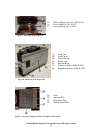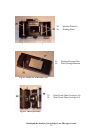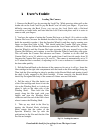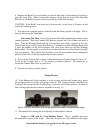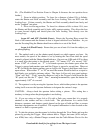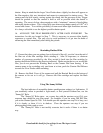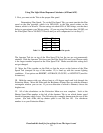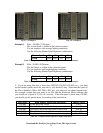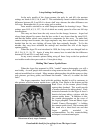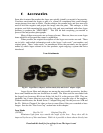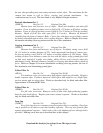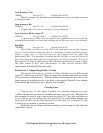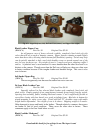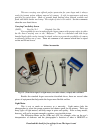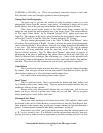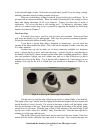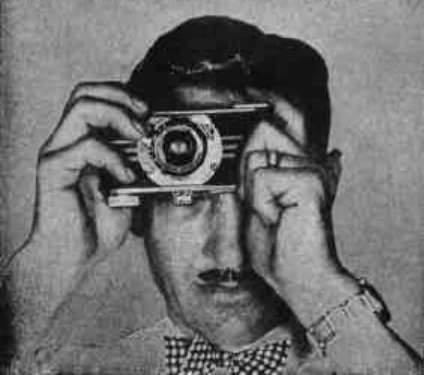
Download this book for free at http://www.TheArgusA.com/
32
f-stop Settings And Spacing
In the early models of the Argus camera, the early As and AFs, the aperture
settings are listed as f/4.5, 5.6, 8, and 11. This undoubtedly caused confusion because the
difference between f/4.5 and f/5.6 is about a half stop, whereas the other differences are
full stops. Remember this if you are using such a camera.
Later models switched to an older European method for denoting f-stops. These
settings were f/4.5, 6.3, 9, 12.7, 18; all of which are evenly spaced to allow one full stop
between them.
This may not have been the only reason for the change, however. Argus had
always been plagued by rumors that the lens on the A was slower than the stated f/4.5,
and that the shutter speeds were retarded to compensate for this error. To make their
camera settings more accurate, the Argus engineers may have retested their lenses and
decided that the iris was choking off more light than originally thought. To fix this
mistake, they may have relabeled the settings and increased the size of the largest
aperture setting.
When the Argus FA was introduced in 1950, the f-stop scale was changed back to
f/4.5, 5.6, 8, 11, 16, 22. Again, if using this camera, bear in mind that the difference
between f/4.5 and f/5.6 is only half a stop.
In any event, extensive picture taking using all three f-stop scales has produced
serviceable results when processed at a 1-hour photo shop.
Holding The Camera Upside Down
When the Argus first appeared in 1936, “candid” camera photography was still a
new hobby. As such, people were unused to using cameras that were small and portable,
and not immobilized on a tripod. Many amateur photographers shook the camera as they
took pictures, got fuzzy prints, and blamed the camera. After all, it couldn’t be their
fault!
The Argus corporation, faced with this problem, decided to tell its customers to
take pictures with the camera upside-down, with the View Finder at the bottom and the
Back Cover of the camera placed firmly
against their forehead. This would provide
a steadier platform for taking photos. Early
instruction manuals for the Argus A show a
bowtie-clad man taking a picture with the
camera upside down. In addition to this,
the woman photographer on the cover of
the Argus pamphlet “Aim and Shoot, Argus
Candid Camera Photography” is holding
her camera upside down. One assumes that
this trend was a short-lived one and that
Argus quickly rescinded its
recommendation, for this camera-holding
technique is not mentioned again.
Fig. 5-5: Holding the camera upside down.
(Taken from an early Argus A manual)



